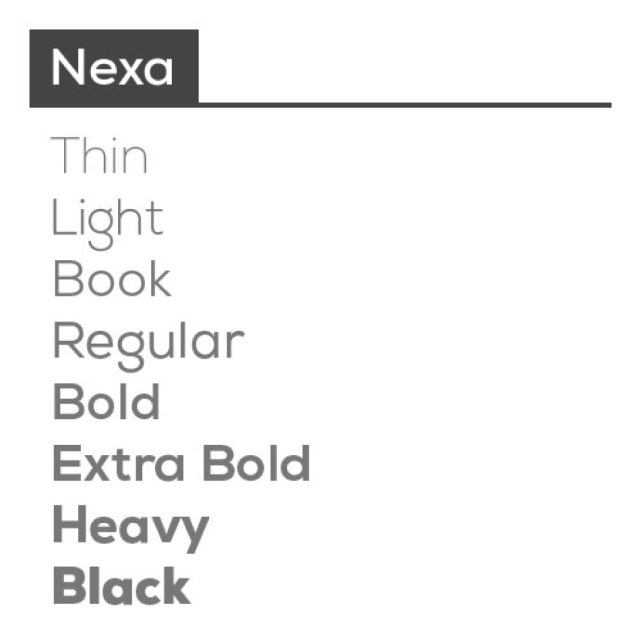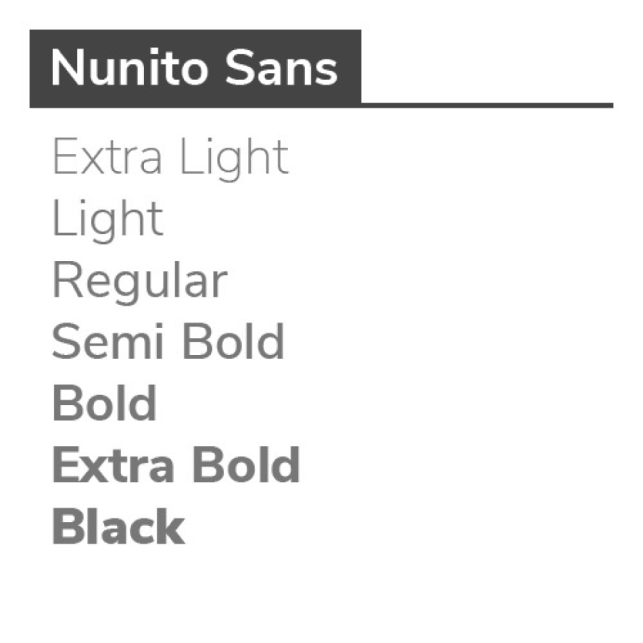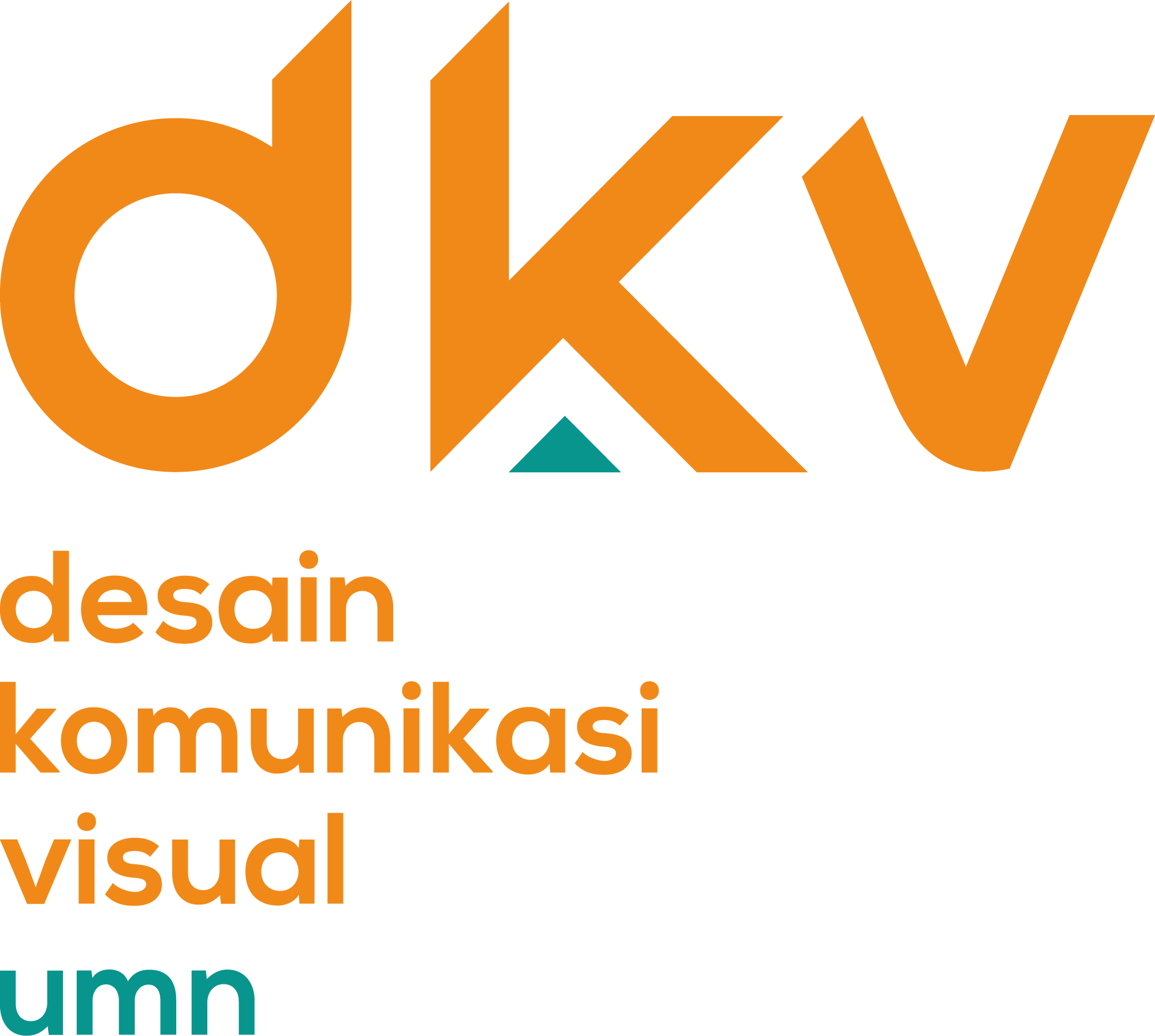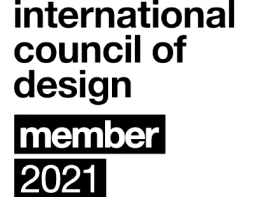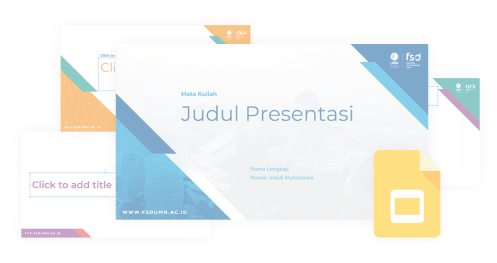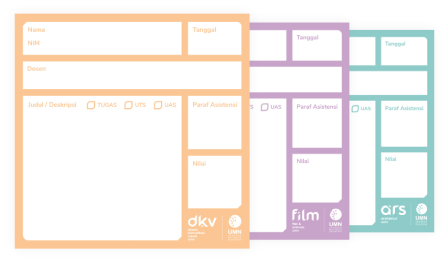FSD Logo Drive
Overview
ABOUT / OVERVIEW / WHY DKV UMN
ABOUT / OVERVIEW / HISTORY
ABOUT / OVERVIEW / GENERAL INFORMATION
ABOUT / OVERVIEW / BRAND IDENTITY
Why Choose
UMN’s Visual Communication Design?
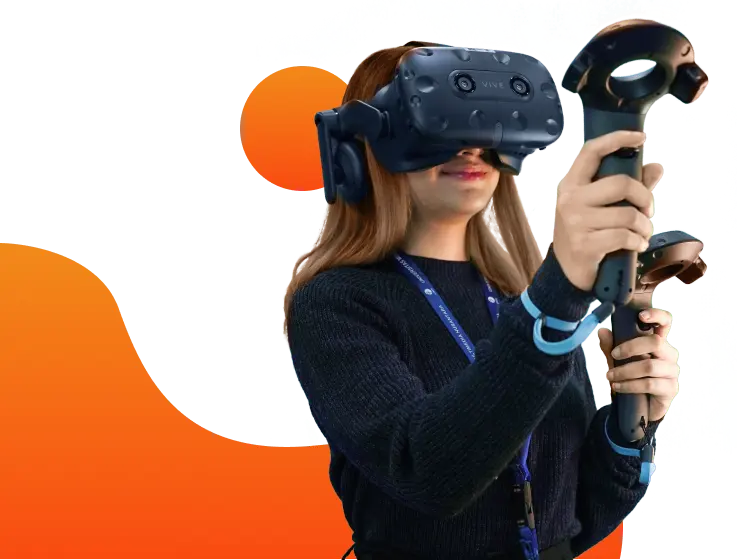
The Visual Communication Design study program at Universitas Multimedia Nusantara upholds Indonesian values. It prioritizes ICT-Based learning (Information Technology) that is suited to the needs of the future industry, such as multimedia design, digital interactivity, etc.
Therefore, UMN’s DKV study program applies an up-to-date curriculum; complete facilities and infrastructure, such as Green Screen & Immersive Laboratory, Game Design & Analysis Laboratory, Macintosh & Windows Laboratory, Illustration x Datascrip Laboratory, integrated E-Learning & Gapura platform, etc.; professional teaching staff, as well as preparing students’ entrepreneurial mindset to face the new era of industry. In addition, this study program has also been recognized by design professional institutions and associations both nationally and internationally, such as Cumulus Creative Linking and the International Council of Design, not to mention valid national reputation, A Accreditation from BAN-PT; and international reputation, AUN-QA.
General Information
What is DKV UMN?
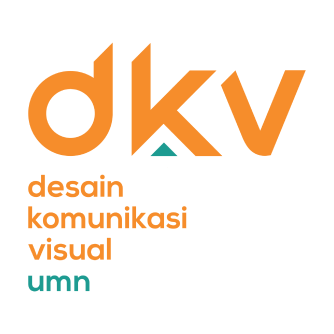
The educational program of the Universitas Multimedia Nusantara Visual Communication Design Study Program is a Bachelor’s Degree (S-1) study with the degree of Bachelor of Design (Sarjana Desain / S.Ds.). It’s the only study program in Indonesia that offers future-oriented focuses which are Visual Brand Design and Interaction Design. These focuses emphasize the use of modern technology, interactivity, and innovation. Our study program also explore various media ranging from print-based to digital-based for the purpose of creating graduates that are competitive in the global industry.
Accreditation
Accredited A
Visual Communication Design Study Programme SK No. 13626/SK/BAN-PT/Ak-PPJ/S/XII/2021



ASEAN University Network – Quality Assurance (AUN-QA)
Certificate No. AP659UMNJUN21
Recognition
DKV Education Value
Based on the principles of
Caring
Credible
Competent
Competitive
Customer Delight

A transcendental humanism philosophy that is the soul of Kompas Gramedia, and the spirit of nationality, UMN provides space for students to be a humanist intellectual, ready to face change, compassionate, intelligent and creative global-minded, virtuous and beneficial to stakeholders, the development of science, and society. UMN is always open and sensitive to developments in technology, science, and the profile of graduates. The learning process is no longer making lecturers as the only source of information, but rather the embodiment of Student-Centered Learning which makes up every part of UMN as a place for students to actively explore knowledge, skills, and competencies related to their field to support Lifelong Learning.
General Information
Focus Specification
General Information
Focus Specification
VBD
Visual Brand Design
ID
Comprehensive and in-depth learning of innovative visual skills that combines the experience of practitioners (industry) and puts more emphasis on advanced conceptual thinking in the field of Information and Communication Technology (ICT) as its support by exploring Nusantara culture as its content. Students will also gain a solid understanding of the application of Brand Design in various media to prepare them for the challenges of a growing industry.
Students are taught to be creative and analytical in responding and exploring phenomena to be confident in solving problems visually innovatively and competitively. Visual Brand Design educates students to be able to analyze, design, and implement design communication through a visual brand identity design, brand communication, and conceptual, creative, and innovative campaigns with social, cultural, economic, and technological considerations.
Producing graduates who can analyze, design, implement design communication through a visual design of brand identity, brand communication, and conceptual, creative, and innovative campaigns with social, cultural, economic, and technological considerations.
|
|
General Information
Focus Specification
ID
Interaction Design
ID
Learning about interaction design includes games in 2D and 3D screen (digital) interactivity media as well as non-screen (conventional). The Interaction Design also develops an art-science framework in the practice of interactive media development in the arts and design fields.
Interaction Design educates students to be able to analyze, design, and implement interactivity through conceptual, collaborative, creative, and innovative visual interaction design with social, cultural, economic, and technological considerations.
Produce graduates who can analyze, design, and apply interactivity through conceptual, creative, and innovative visual interaction design with social, cultural, economic, and technological considerations.
|
|
General Information
The Goals
Forming a Bachelor of Art & Design who has high competence in the field of new visual media with the basis of noble character, the culture of archipelago, entrepreneurial spirit & the adaptation ability.
Inventing the scientific works in the field of Arts & Design in the form of research, design, proceedings, and scientific journals, both digitally and traditionally that are beneficial to society and industry.
Contributing the Arts & Design (values) to the community through student activities, program activities, and alumni activities.
Leading Visual
Visual Communication Design has various advantages under the vision of the University as follows:
Excellence in the vision of producing Competent, Creative, and Innovative graduates both in hard skills and soft skills, competitive, independent, have a global perspective and entrepreneurial spirit, as well as participation in preserving the nation’s cultural roots that has Indonesia’s characteristics and uniqueness. Thus, producing Faculty of Art & Design graduates that have international quality.
Excellence in the vision of producing graduates whose competence fits the specialization of the visual communication design study program, namely the Visual Brand Design and Interaction Design which refers to the National Competence Standard (NCS).
Excellence in the vision of producing graduates who have a fundamental basis in Information and Communication Technology (ICT), where alumni of the Visual Communication Design (VCD) study program will have the ability to operate various media, both digital and traditional, as well as high sensitivity and adaptive power in development of information and technology.
Excellence in the vision of producing graduates with an entrepreneurial spirit, where the main goal after students graduate is to be able to live independently, have leadership skills and be competitive in entrepreneurship in their fields, as well as or have the ability to be professional and be able to innovate in their creative areas.
Excellence in vision produces graduates with noble character, high human values, a sense of caring, a good attitude, are appreciative, instilling moral values, and togetherness. These character values are the basis for attitudes that support hard skill competencies value so that graduates have good character and are human-oriented in helping others.
Our Faculty of Arts and Design
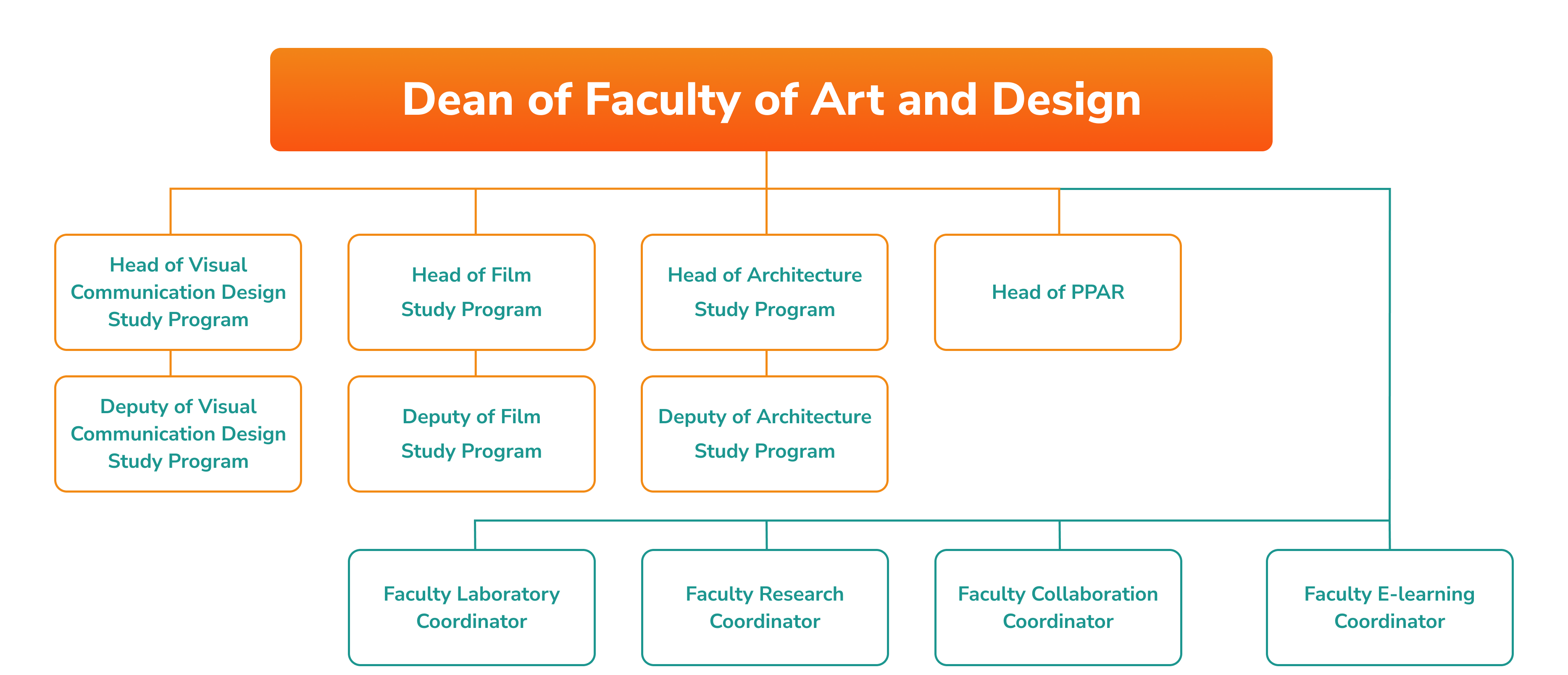
In accordance with UMN vision, the Faculty of Arts and Design expected the graduates to produce creative, competent and internationally-oriented skills in the field of Information and Communication Technology (ICT) based Art, entrepreneurial and noble character.
Currently, there are 3 undergraduate programs under the Faculty of Art and Design: Visual Communication Design, Film, and Architecture.
General Information
General Profile
| Awarding Body or Institutions | Universitas Multimedia Nusantara |
| Teaching Institution | Faculty of Arts and Design - Universitas Multimedia Nusantara |
| Operational License | Kepmendikbud No 169/D/O/2005 |
| Program Approved by the National Accreditation Body (BAN PT) | 28 november 2005, Desain Komunikasi Visual |
| 3226/SK/BAN-PT/Akred/XII/2016 | |
| Program Title(s) and UCAS Code(s) | Sarjana Desain (S. Ds. - Bachelor of Design) |
| Based on Kepmenristekdikti No. 257/M/KPT/2017 | |
| Date of Revision | 2017 |
| Program Characters | Outcome Based Education (OBE) |
| Model of Study | Full-time |
| Type of Study | Campus Based |
| Major | Visual Brand Design |
| Interaction Design | |
| Admission | Senior high school and pass the entrance exam or meet the invitation scheme criteria |
| Registration Period | Enquiries, Test, and Registration: June - July Next Year |
| Test: week 1 and week 3 every month | |
| Test Result: week 2 and week 4 every month | |
| Admission (Final Submission/Re-registration): August 13rd, 14th, 15th | |
| Entry Requirement | Regular test path |
| High School academic report path | |
| Non-academic achievement path | |
| Refrence Point Used to Inform the Program Specification | IQF |
| Permenristekdikti No. 44 of 2015 concerning Higher Education National Standarts, chapter II | |
| Non-academic achievement path | |
| Intended Level of Completed Program (in line with IQF) | In line of IQNF 6 (Indonesian Qualification National Framework) |
| Graduation Requirement | Completing 144 credits |
| Fulfilling 20 SKKM | |
| Program Aims | This program aims to produce graduates with an innovative and creative mind and problem-solving skills according to national and global competencies to contribute to the visual communication design profession. |
| Program Vision | Become a leading Bachelor of Visual Communication Design Program that crates the creative, innovative, competent, and international-oriented graduates with the focus of developing the new visual media based on Information and Communication technology (ICT), entrepreneurial spirit and virtuous character. |
| Program Mission | Organizing a learing process that is supported by qualified teaching staff and an up-to-date curriculum taht links and matches the industrial world. |
| Performs the research programs that contribute to the development of new visual media to advance the science of ICT and ICT-based Visual Communication Design. | |
| Utilizing the science of Arts and Visual Communication Design in order to deliver the community service. | |
| Program Objectives | Forming a Bachelor of Arts & design who has high competency in the field of new visual media with the basis of noble character, the culture of archipelago, enrepreneurial spiritm, & the adaptation ability. |
| Inventing the scientific works in the field of Arts & Design in the form of research, design, proceedings, and scientific journals, both digitally and traditionally that are beneficial to society and industry. | |
| Contributing the Arts & Design (values) to the community thorugh student activities, program activities, and alumni activities. | |
| Program Outcomes | Will be further explained in Expected Learning Outcome of Visual Communication Design |
| Indications of Program Quality | BAN-PT A-grade accreditation |
| Cumulus Association member | |
| Ico-D member |
History
Our University, Faculty, and Study Program
Universitas Multimedia Nusantara was founded by Kompas Gramedia Group (KGG), a leading Indonesian media group, as a contribution to the nation to enlighten the people. In 2007, UMN started the operation with four faculties and seven undergraduate programs. UMN sets the vision to become a leading university in the fields of Information and Communication Technology (ICT) at the national and international level, which produces graduates that are internationally-minded and highly competent in their field with an entrepreneurial spirit and virtuous character. The mission is to participate in educating the society and to promote the welfare of the nation through higher education by implementing Tri Dharma Perguruan Tinggi (Teaching, Research, and Community Outreach), to improve the quality of human resources of Indonesia.
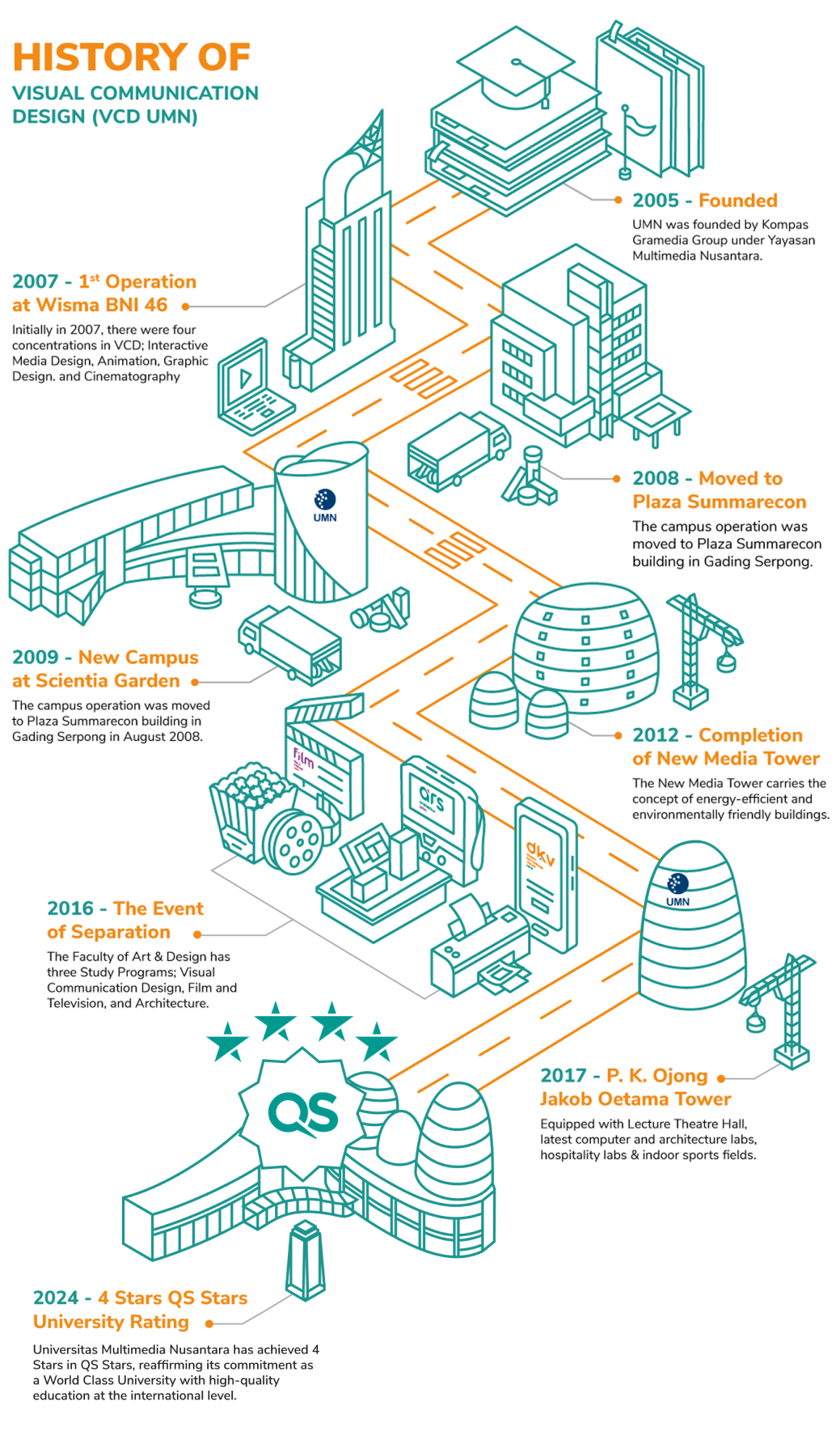
In 2007, the UMN campus began operations at Wisma BNI 46, in the capital city Jakarta. In August 2008, the campus operation was moved to Plaza Summarecon building in Gading Serpong, near to the location where the campus complex later occupied. On August 24, 2009, UMN occupies a new campus in 8 hectares area located in Scientia Garden, Boulevard Gading Serpong, Tangerang.
In 2012, the campus continued to grow with the completion of a new building named New Media Tower. The New Media Tower carries the concept of energy-efficient and environmentally friendly buildings. This 12-story building is used for canteens, public spaces, galleries, lecture theaters, laboratories, classrooms, business incubators, and some working spaces with the industry.
On September 27, 2017, a new 19-story building completed and inaugurated as P.K. Ojong – Jakob Oetama Tower. The building can accommodate lecture activities for up to 5000 students. Equipped with a variety of new facilities beside classrooms, such as Lecture Theatre Hall with a capacity of 500 people, the latest computer & architecture laboratories, hospitality laboratories and indoor sports fields on the top of the building. UMN formulated and developed the specific educational objectives in accordance with the vision and missions of the university and its faculty.
In April 2024, UMN further strengthened its commitment to becoming a World-Class University by achieving a prestigious 4-star rating from the international ranking institution, QS Stars World University Rating. This recognition highlights UMN’s dedication to providing high-quality education and competing at an international level. According to international standards, UMN has successfully earned a 5-star rating in the categories of Teaching, Employability, Online Learning, and Inclusiveness.
History
Our Visual Communication Design Study Program
VCD study program is held based on the Decree of the Directorate General of Higher Education No. 3299/D/T/K-III/2009 on August 28, 2009, with a Bachelor level education program. The VCD program began accepting and administering the first batch of students in the odd semester of the 2007/2008 academic year. The VCD study program is accredited A based on the National Accreditation Board Decree number 13626/SK/BAN-PT/Ak-PPJ/S/XII/2021 with a validity period until December 28, 2026.
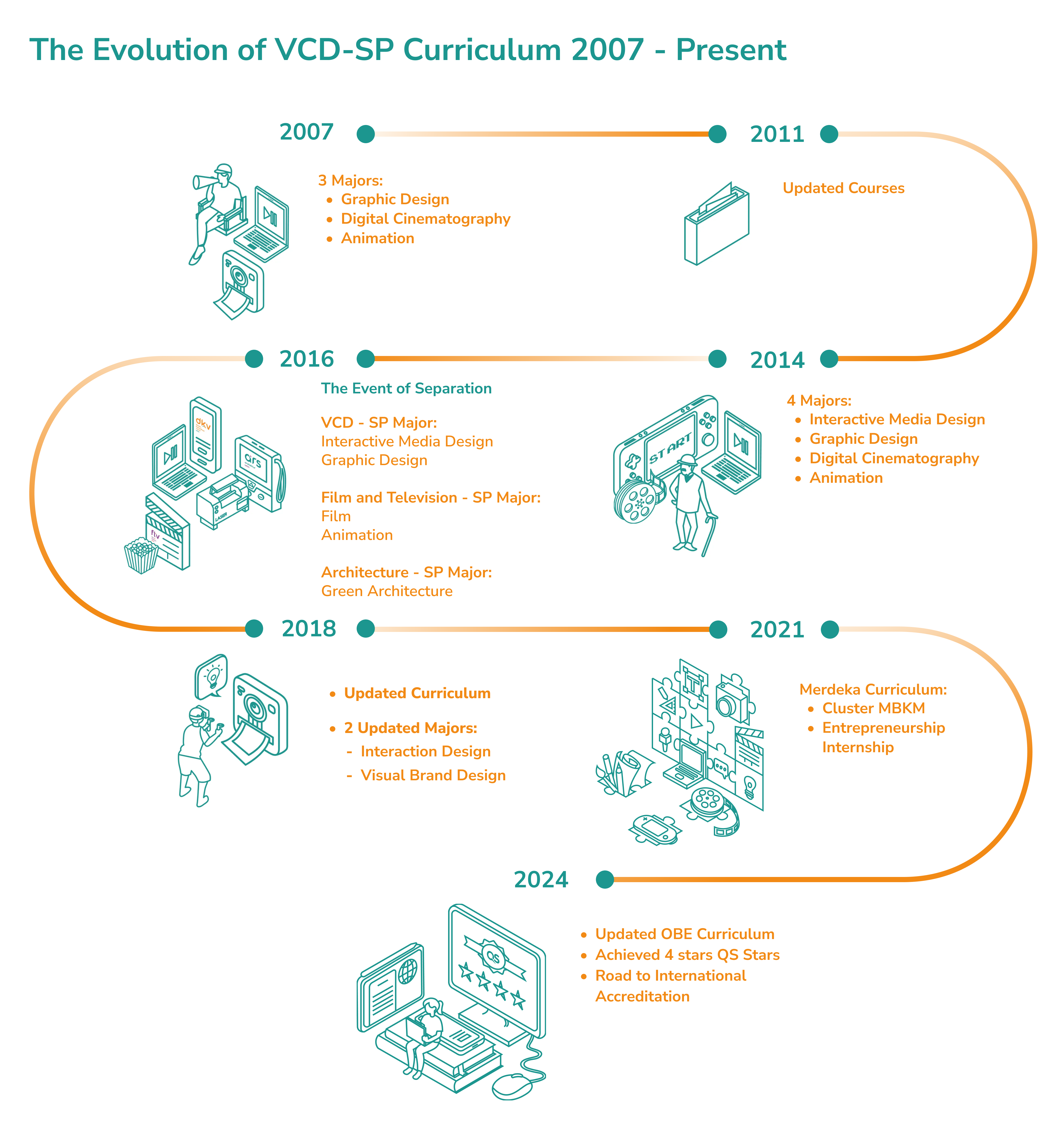
Initially, there were 4 focuses in the VCD-SP; Graphic Design, Interactive Media Design, Cinematography, and Animation. In 2016, Digital Cinematography and Animation separated from the VCD-SP and became their own study program called a Film study program following the Faculty development plan. Therefore the basis of the curriculum component formed with 4 focuses is less relevant for the two focuses remaining in VCD-SP (Graphic Design, and Interactive Media Design). Following the event of separation, an initial evaluation team of the VCD study program was formed by the Head of VCD-SP 2015 with assignment task No. 15/T/Head of Study Program-DKV/VIII / 2015. Based on all stages of evaluation and minutes that have been carried out by the evaluation team, a curriculum team then formed by the Dean of the Faculty of Art and Design with assignment task No: 056/T/Dean-FSD/X/2015 to design a new curriculum implemented in the 2018/2019 academic year. This new curriculum changes two focuses remaining into Visual Brand Design and Interaction Design.
Following the event of separation, an initial evaluation team of the VCD program was formed by the Head of VCD program in 2015 with assignment task No. 15/T/Head of Study Program-DKV/VIII / 2015 to establish the new VCD department and curricula. The VCD program vision and mission is derived from the University and Faculty as described on our Vision & Mission page.
In 2024, the VCD program underwent a curriculum revision to enhance academic quality and align with industry demands. This update introduced additional mandatory courses while reducing the number of credits allocated for the Merdeka Belajar Kampus Merdeka (MBKM) program. Furthermore, the VCD program in UMN achieved 4-star rating from QS Stars, marking significant recognition of its excellence. As part of its continuous development, the program is also on the Road to International Accreditation, aiming to meet global education standards.
Brand Identity
Philosophy & Identity
The identity of Visual Communication Design refers to the Faculty of Art and Design of Universitas Multimedia identity, which is represented by a triangular shape designed by considering the level of sustainability in meeting the development needs of the faculty in the future. The meaning of this triangle shape is the motivation to improve its image as a leading educational institution to improve the quality of human resources in Indonesia.
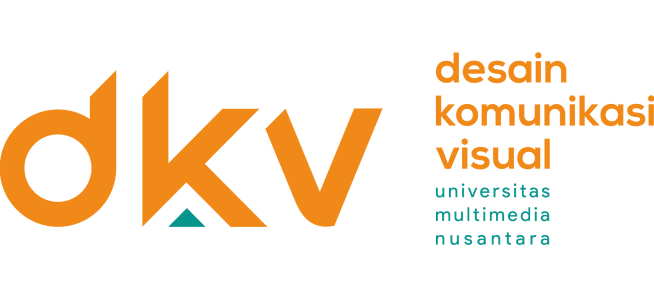
Logo
The triangle pointing up ( ▲ ) represents elevated values, improving quality and producing graduates who can compete in the global competition.
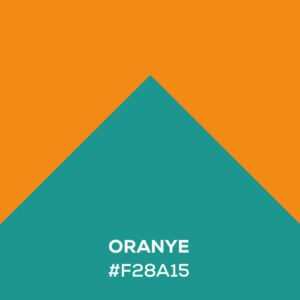
Color
The primary color is orange, which represents the value of creativity. The combination of Teal color represents the Visual Communication Design Study Program students’ awareness of the environment while working creatively.
Variant
Vertical Variant

The main logo variant is used with vertical text configuration below the logo and on media requiring shorter width.
Horizontal Variant

This variant is used for particular purposes on media that require shorter height.
Download File
The use of Visual Communication Design identity must follow the rules and prohibitions contained in the following section to maintain consistency and professionalism.
Note:
Make sure you are logged into your Google account using the e-mail @student.umn.ac.id or @lecturer.umn.ac.id before downloading the file. Access requests will not be granted if you do not log in using e-mail with the umn.ac.id domain.
Brand Identity
User Guide
The use of Visual Communication Design identity must follow the rules and prohibitions contained in the following section to maintain consistency and professionalism.
Rules
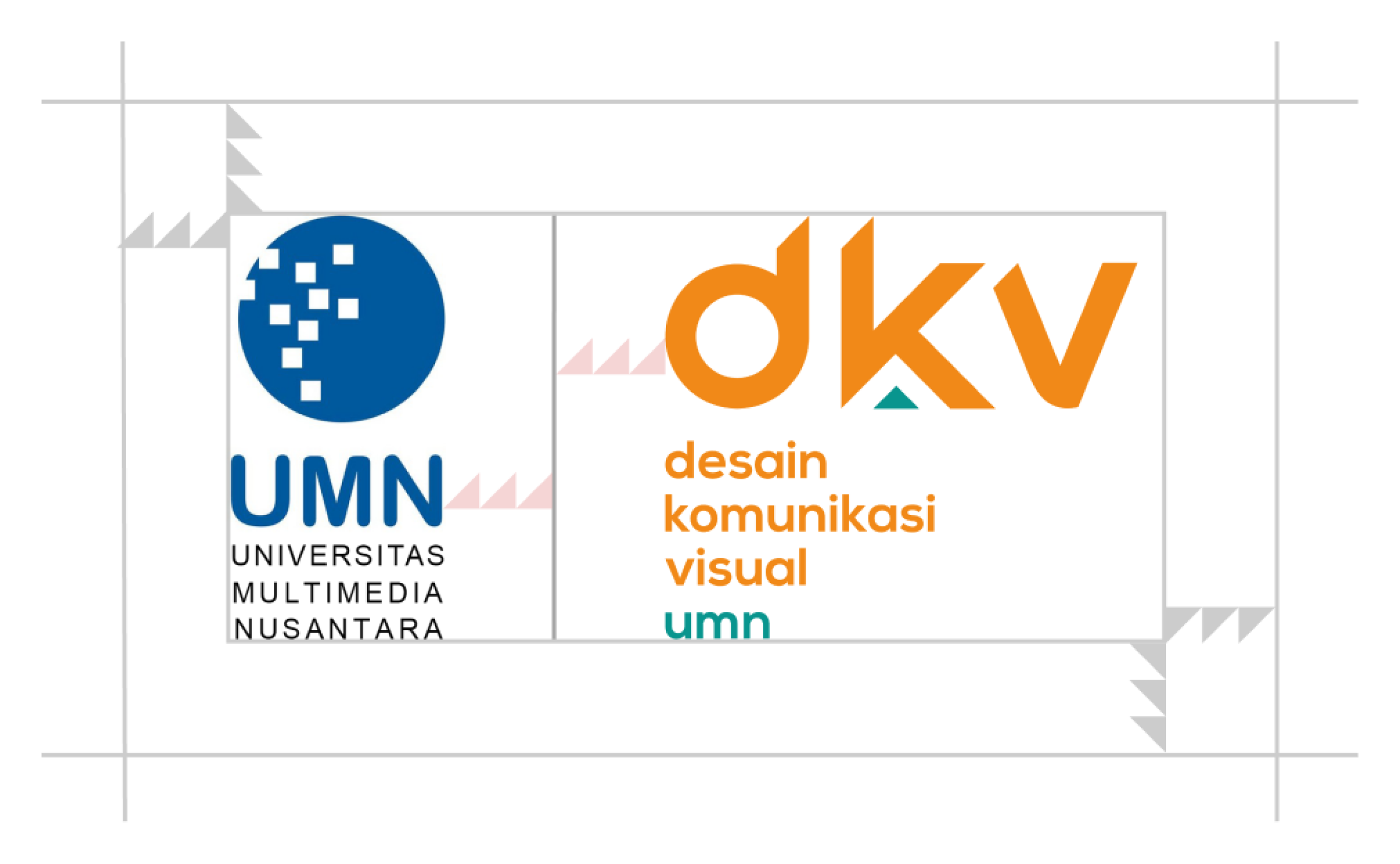
1. Size and Distance
The identity must have an empty area limit on each side specified at least three times a triangle, which intended to maintain balance and legibility in the identity displayed.
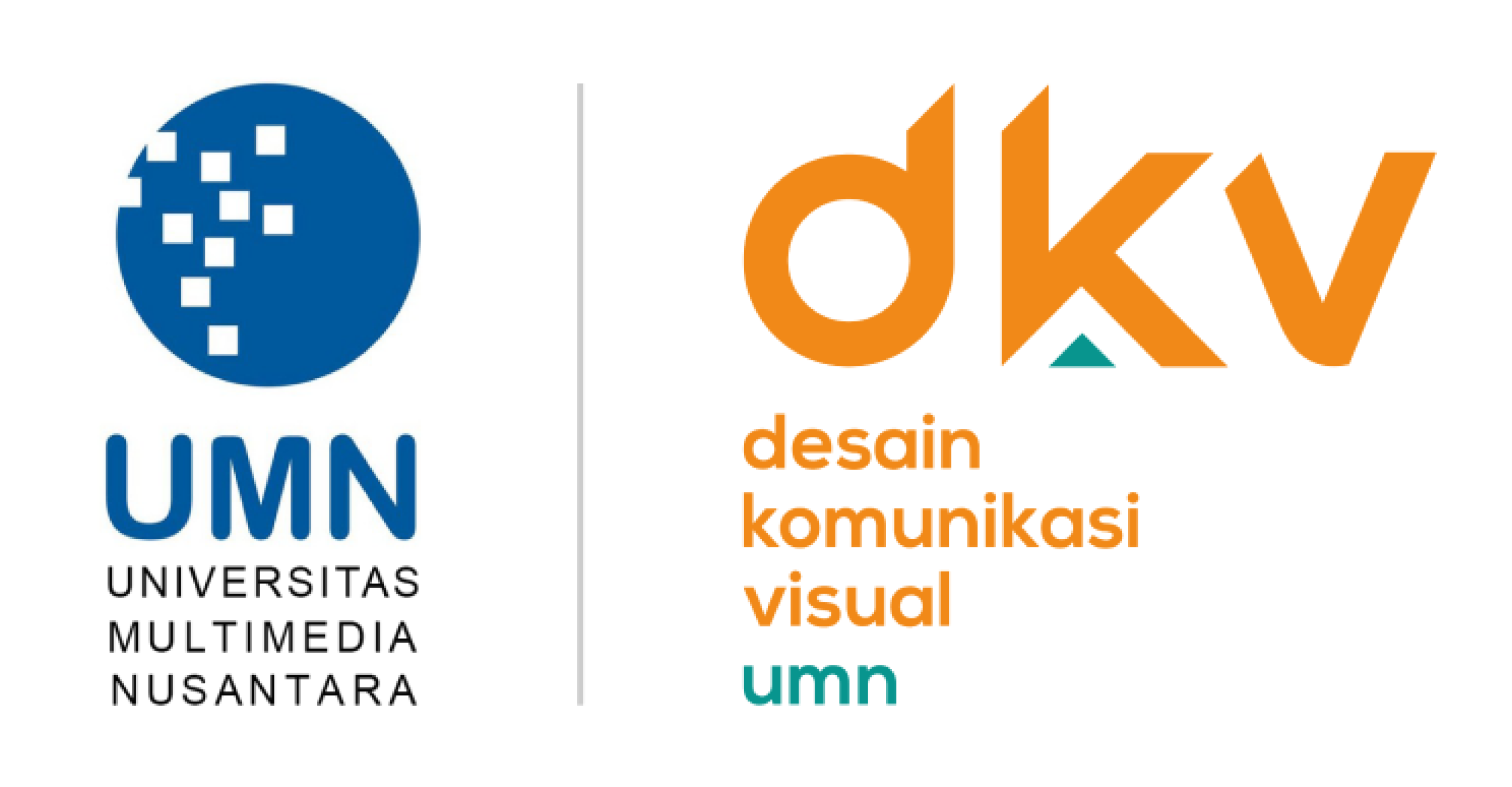
2. Acronym Variant
When there is a UMN logo, the vertical variant will be used for consistency. The acronym aims to lighten the visual burden (the acronym explanation has been included in the UMN logo).
3. Full Variant
This variant is used for publication needs to external parties if the UMN logo is not included as a companion.
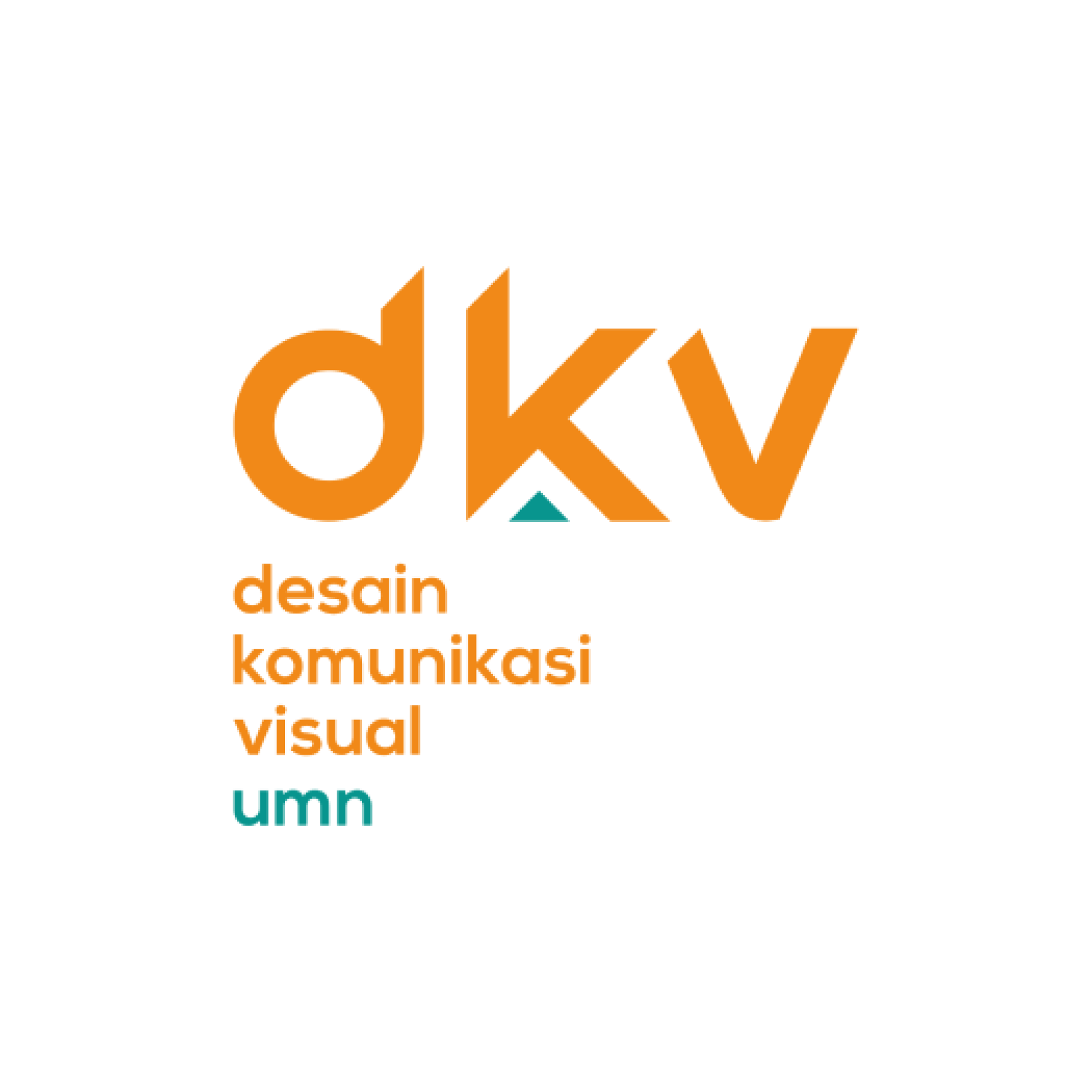
4. Diapositive Variant
This variant is used for colored backgrounds or other purposes, e.g., stamps or black and white print media.
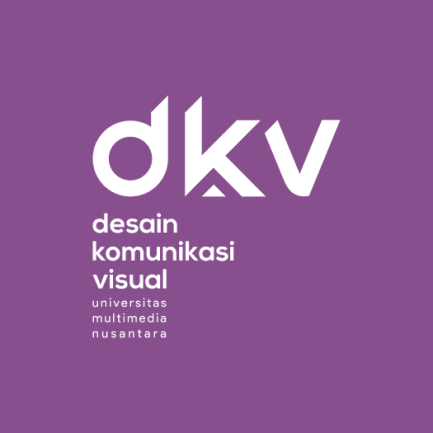
5. Use on photo background
Prioritize using a diapositive variant logo on a transparent/semi-dark background with many colors for contrast.
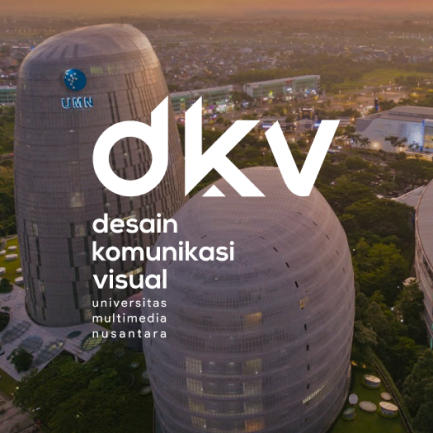
Typography
